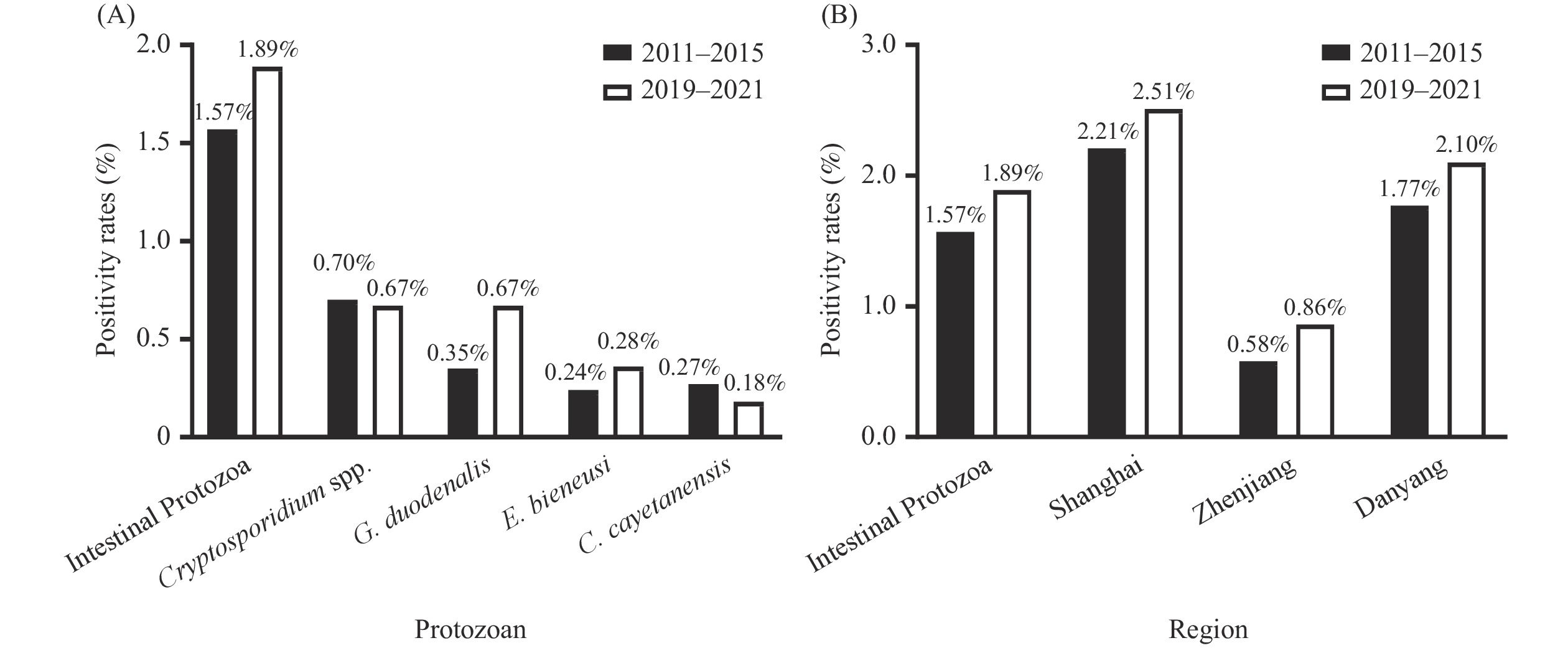2022 Vol. 4, No. 8
Previous surveys have mainly focused on how well residents and primary school students have understood the core knowledge of echinococcosis control and are limited in terms of the comprehensiveness of the knowledge category and respondents.
There were some shortcomings in related knowledge of echinococcosis among students, which showed a tendency to know methods but not the rationale. The differences among regions indicated a lack of a unified system for training educators and allocating comprehensive educational material.
The results of this study provide evidence to potentially help improve health education programs in the new phase of echinococcosis prevention and control in China.
Intestinal protozoa are common pathogens of diarrhea globally. However, the etiology of diarrhea due to intestinal protozoan infections in China is not known.
Based on active syndromic surveillance in Shanghai, Zhenjiang, and Danyang during 2011–2015 and 2019–2021, 89 (1.67%) patients were infected with intestinal protozoa (Cryptosporidium spp., Giardia duodenalis, Enterocytozoon bieneusi, and Cyclospora cayetanensis), and positivity rates statistically differed by region and age.
This was the most comprehensive data collection in investigating parasitic diarrheal diseases in humans. Identification of these protozoa in diarrhea will provide new perspectives for detecting hidden etiological agents of diarrhea as early as possible.
Mountain-type zoonotic visceral leishmaniasis (MT-ZVL) cases in China have increased significantly between 2015 and 2020. A total of 25 regions had re-emerged yielding 88 MT-ZVL indigenous cases, while the total number of visceral leishmaniasis cases declined.
The transmission risk of MT-ZVL showed a trend of patchy dissemination centered on major endemic areas and medium-high risk occurrence areas of Phlebotomus chinensis with discrete foci. Multi-point re-emergence and local outbreaks of MT-ZVL were trending in historically endemic areas.
Risk identification and early warnings of MT-ZVL are essential in formulating precise prevention and control strategies in China. More frequent monitoring, establishing a mechanism of joint prevention and control, and highlighting health education are recommended.



 Subscribe for E-mail Alerts
Subscribe for E-mail Alerts CCDC Weekly RSS Feed
CCDC Weekly RSS Feed

